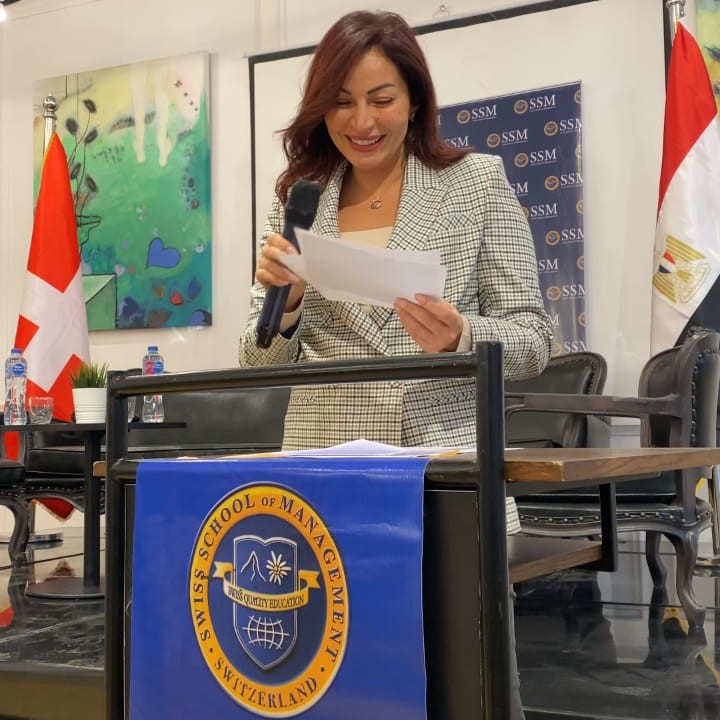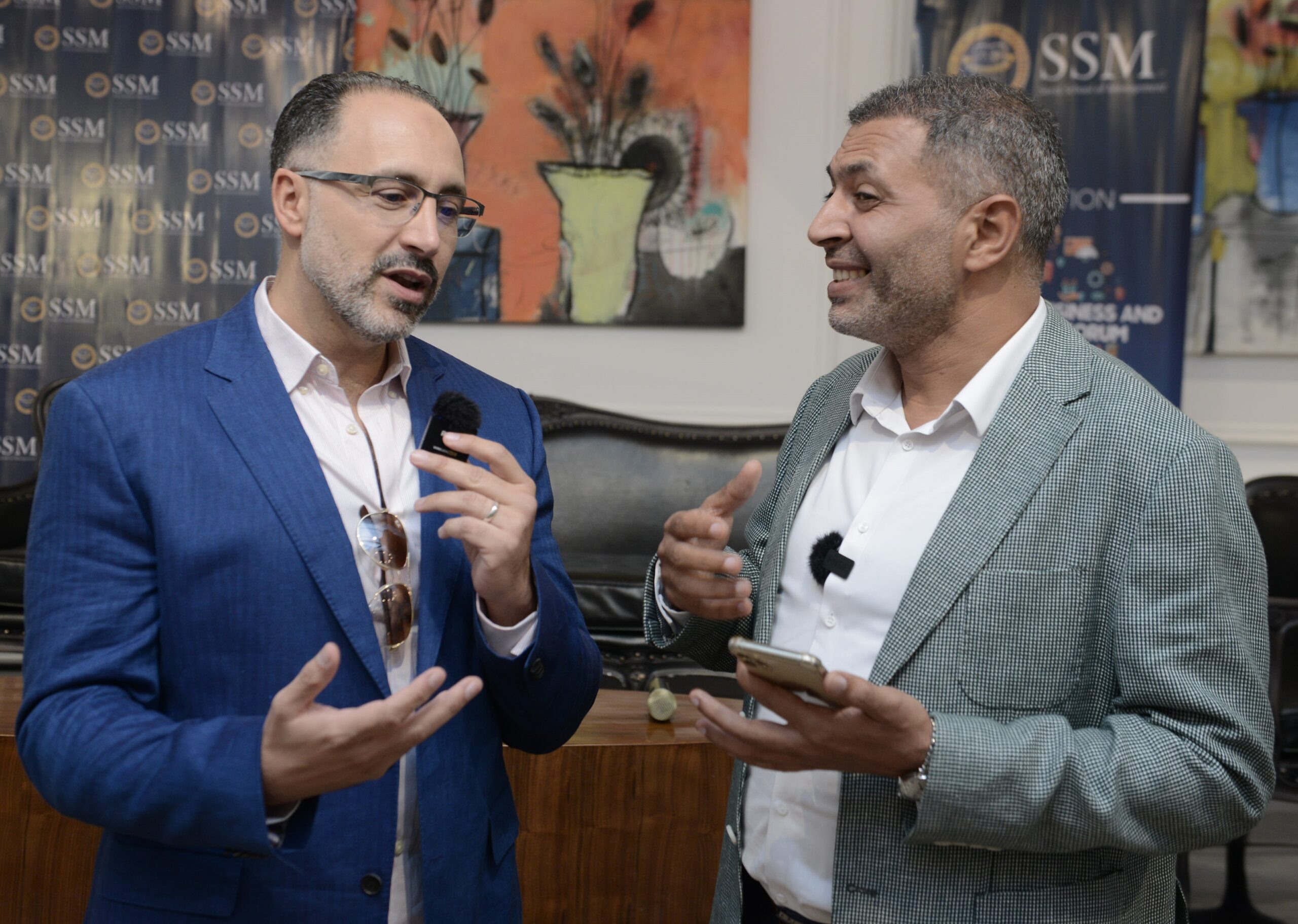Programs
Take a look at our Accredited Programs below:
We empower talent with Swiss School of Management and artificial intelligence. Our educational portfolio offers new
programs that positively impact participants and companies.
Build your foundations with the Bachelor of Business Administration (BBA). A full-time, 180 ECTS program that is divided into three years.
The 1 year 60 ECTS Master of Business Administration (MBA) will equip you with the tools to be successful in your career.

The 1 year 60 ECTS Master of Business Administration (EMBA) program is like the MBA program with a particular emphasis on applied research, ideal if you already have a career that you would like to advance in-
A doctorate degree is the highest, and most prestigious recognition you can achieve. Our two year (120 ECTS) program brings all the prestige and challenge, but with a practical approach.
Become part of the elite in the fashion industry with us!
- Learn comprehensive tailoring and luxury fashion management
- One year until the international fashion show
- Present your creation in Milan, Rome, Dubai and Paris with international press.
- Overview
- Eligibility
- Modules
- Fees
- Apply Now!
Blended Method:
The program is available in person or online through our blended study method. Every class session is live-streamed online and recorded onto our online platform, allowing our students to have all the tools they need to be successful in their program
The Bachelor of Business Administration (BBA) is designed to give a broad knowledge of the functional areas of a company and their interconnection while also allowing specialization in a specific field. BBA programs expose students to various subjects and allow students to specialize in particular academic areas. The degree also develops the student’s practical managerial communication skills. The program incorporates training and practical experience through case studies, presentations, internships, industrial visits, and interaction with experts.
The Bachelor of Business Administration (BBA) is a full-time, 180 ECTS program divided into three years; Sophomore, Junior, and Senior. Students who did not complete their Freshman year in their Secondary studies may be required to complete a Freshman level course before they continue to this program. The Swiss School of Management offers the Freshman year through our collaboration with study.com. Classes are lectured by qualified faculty with an International Curriculum. Students also participate in internships, company visits, excursions, forums, symposia, guest speaker presentations/webinars, e-conferences, and much more.
The program culminates with the submission and defense of a thesis on a business-related subject of the student’s choosing. Students who complete the program are awarded the Bachelor of Business Administration degree from the Swiss School of Management.
The Swiss School of Management utilizes an innovative approach to team-based online learning as the Swiss School of Management strongly believes that this approach reflects today’s progressive workplace. The Swiss School of Management’s Bachelor of Business Administration program will open the door to international career opportunities by preparing students for global business.
Overview:
The first year of the Bachelor of Business Administration degree explores in-depth and complex contexts of how businesses’ goals ensure they gain and maintain a competitive advantage. This is equivalent to the Sophomore year of the three-year Bachelor Administration Program level. The Program awards 60 ECTS or 30 US Credits.
The three-year course begins with the fundamentals of business administration, which positions students for advanced options later in the program. The Swiss School of Management’s undergraduate curriculum is designed to give students the maximum degree of choice and flexibility while also providing insights into all management’s major fields and functions. Students will take business courses from many different disciplines and will have the opportunity to concentrate on one or several significant areas in the third year of study.
Year 1 Courses (Table)
COURSE NUMBER |
COURSE TITLE |
COURSE TYPE | TOTAL COURSE CREDIT/ CLOCK HOURS |
BUS 200 | INTRODUCTION TO BUSINESS | Core/Required | 2 US Credits/ 4 ECTS |
BEN 201 | BUSINESS ENGLISH | Elective | 2 US Credits/ 4 ECTS |
FIN 210 | INTRODUCTION TO FINANCE | Core/Required | 2 US Credits/ 4 ECTS |
MKT 220 | INTRODUCTION TO MARKETING | Core/Required | 2 US Credits/ 4 ECTS |
STA 210 | MANAGERIAL STATISTICS | Core/Required | 2 US Credits/ 4 ECTS |
COM 210 | COMMUNICATION SKILLS | Core/Required | 2 US Credits 4 ECTS |
MIS 210 | MANAGEMENT INFORMATION SYSTEMS | Core/Required | 2 US Credits/ 4 ECTS |
ACC 210 | MANAGING ACCOUNTING COSTING AND BUDGETING | Core/Required | 2 US Credits/ 4 ECTS |
MGT 210 | MANAGEMENT | Core/Required | 2 US Credits/ 4 ECTS |
MAT 210 | MATHEMATICAL TOOLS FOR BUSINESS | Core/Required | 2 US Credits/ 4 ECTS |
ECO 210 | ECONOMICS | Core/Required | 2 US Credits/ 4 ECTS |
COR210 | COMMERCIAL CORRESPONDECE | Core/Required | 1 US Credits / 2 ECTS |
TQM 210 | TOTAL QUALITY MANAGEMENT | Core/Required | 2 US Credits/ 4 ECTS |
SMG 220 | SALES MANAGEMENT | Core/Required | 2 US Credits/ 4 ECTS |
FOL211 | FOREIGN LANGUAGE | Elective | 2 US Credits/ 4 ECTS |
FOL212 | FOREIGN LANGUAGE | Elective | 2 US Credits/ 4 ECTS |
LAW 220 | BUSINESS LAW | Core/Required | 2 US Credits/ 4 ECTS |
LEA 220 | LEADERSHIP MOTIVATION & GROUP DYNAMICS | Core/Required | 2 US Credits/ 4 ECTS |
INT 220 | INTERNSHIP | Capstone | 1 US Credit/ 2 ECTS |
Year 1 Course Descriptions:
BUS200: Introduction to Business
This course is designed as a survey course that will expose you to business terminology, concepts, and current business issues. The intent is to develop a viable business vocabulary, foster critical and analytical thinking, and refine your business decision-making skills.
BEN201: Business English
This program is designed for non-native English speakers. It aims to improve their oral, written, and listening comprehension language skills while making them more effective communicators in a business environment. In addition, the individual and group activities focus on continuously increasing their use of appropriate vocabulary and grammatical structures while learning how to negotiate and make effective presentations.
.
FIN210: Introduction to Finance
This course aims to help students acquire skills in the main principles of Finance and its application to the Business world. In particular, students will learn the impact of Finance in Business, the basic Capital Investment Decisions, and the Management of Working Capital. Finally, students will learn some techniques for Financing a Business.
MKT210: Introduction to Marketing
This course introduces students to the concepts and skills needed to create and critique effective marketing. Marketers in all organizations require an understanding of the many facets of marketing, beyond simply advertising or communications.
STA210: Managerial Statistics
This course aims to help students acquire skills in the elaboration, representation, and interpretation of business data with the support of statistical and mathematical tools. In particular, students will learn how to process and present in MS Excel some essential data. Finally, students will learn how to apply descriptive statistical measures to businesses.
COM210: Communication Skills
The course will be divided into 16 Chapters, Assignments, and Final Written Exam. It will take students through oral and written business communication skills, critical thinking and analytical reasoning, ethical decision-making, teamwork, and professionalism.
Student participation in class, including homework, Assignment, and Final exam, represent the tools for evaluating the students (see Table 1). These practices will comprise critical thinking, theory, case study, and actuality.
Students will be motivated to perform interactive activities and participate actively by brainstorming, presenting, attending, and asking questions. Enhancing presentation and writing skills will be an integrated task.
MIS210: Management Information Systems
Computers are everywhere. Software is eating the world. The introduction of the iPhone started the Digital Era, a period of explosive digital diffusion. During the Covid19 pandemic, digital has been helping us not only to survive, but to maintain and even foster personal relations as well as to work and manage businesses remotely.
ACC210: Managing Accounting Costing & Budgeting
MGT210 Management
Management is achieving organizational goals by engaging in the four functions of planning, organizing, leading, and controlling. Management entails reaching essential goals and knowing how to perform the primary functions of management. The course introduces the significant management tasks and provides an overview of organizational activities.
MAT210: Mathematical Tools for Business
This course aims to prepare the students to meet the demands of today’s business world with the proven, practical dual approach to using MS Excel. In particular, students will learn the traditional methods of calculating. Finally, the students will learn the essential functions of MS Excel in applying the Math concepts.
COR210: Commercial Correspondence
The course will be divided into 16 Chapters, an Assignment and a Final Written Exam. It will take students through oral and written business communication skills, critical thinking and analytical reasoning, ethical decision making, teamwork skills and professionalism.
ECO210: Economics
This course will introduce you to the economic principles and policies affecting the economy, while at the same time introducing you to ethical principles, how they relate to economic principles, and how they may affect policies and the economy. With regard to economic principles, we will examine both microeconomics (the study of individual decision making by consumers and businesses) and macroeconomics (the study of social level problems that most often are reported in the evening news, e.g. economic growth, inflation, unemployment, government spending and taxes, money and interest rates and international exchange and trade) . With regard to ethical principles, we will briefly examine ethical principles in general, but focus upon the applications of ethical principles in economic contexts.
TQM210: Total Quality Management
The course will take students through focus, statistical methods, controlling, and measuring quality to obtain a holistic view of total quality management. The scope is to understand quality assessment and how to monitor quality clearly. A final examination will complement presentations in creating the final grade. Students will be motivated to participate actively by presenting, attending, and asking questions.
SMG220: Sales Management
The course will be divided into ten Chapters, an Assignment and a Final Written Exam. It will take students through personal selling, objectives and strategies of personal selling, including communication skills, building trust, planning, customer service, adding value etc. The scope is to obtain a clear and direct understanding of sales process and how to optimize sales by meeting the client’s needs.
FOL211: Foreign Language 1
This is an entry-level Chinese class for beginners who are interested in Chinese culture and language. It is useful to know about the language when coming to China for travel or business. Participants will not only be exposed to authentic language contexts, but also to situations where their abilities to use the Chinese language to do creative dialogues. All the learning materials chosen reflect the value system, traditions, daily life, social development, and business-oriented conversations of the current Chinese society.
FOL212: Foreign Language 2
LAW220: Business Law
Business Law, Commercial Law, and European Law are legal fields that have gained in
importance in recent decades and have increased due to the globalization of economies and the related development of international commerce. We can affirm that Business laws establish the rules that all businesses should follow. This course will introduce students to business law’s basic concepts and problems of Business Law and the International legal system. The course will cover the main topics in this field. Such as the basic principles and sources of EU Law, International Law, and the legal order; the Four Freedoms; the settlement of disputes. Competition Law, Unlawful agreements and concerted practices, Abuse of a dominant position and price policy, Torts, contracts, and Negotiable instruments, the Lifecycle of a Business agreement, and the new EU GDPR principles.
LEA220: Leadership, Motivation, & Group Dynamics
This course is designed to provide a basic introduction to leadership by focusing on what it means to be a good leader. Emphasis in the course is on the practice of leadership. The course will examine topics such as: understanding leadership; recognizing leadership traits; engaging people’s strengths; understanding philosophy and styles; attending to tasks and relationships; developing leadership skills; creating a vision; establishing a
constructive climate; listening to out‐group members; handling conflict; addressing ethics in leadership and overcoming obstacles. Students will assess their leadership traits and skills to improve their own leadership performance.
INT220: Internship
You must bring proof of at least two months of Internship experience in a local (or virtual-remote) business. In alternative to an internship, would a Study-Abroad experience also be accepted. For the latter option, you must produce a certificate of attendance or academic transcripts from the host institution.
Overview:
In the second year of the three-year program, students expand on the fundamentals they learned during the first year of study. Students will take a critical and practical approach to the core concepts of business administration and management. This is when students begin to move past foundational knowledge and dive deep into the concepts covered in the first year. At the end of the academic year, second-year students will have the opportunity to apply their knowledge in real-life situations through the required internships, which facilitates students to have a skillset beyond just theory but sought-after real-life practical skills in the job market today. This is equivalent to the Junior year of the three-year Bachelor Administration Program level. The Program awards 60 ECTS or 30 US Credits.
This program provides more advanced knowledge, understanding, and skills that will enable students to:
- Develop an understanding of the professional world through case studies and field research;
- Build an up-to-date knowledge base of management skills applicable to Business Administration within a context of understanding the broader industrial and economic interests.
Year 2 Courses (Table)
COURSE NUMBER |
COURSE TITLE |
COURSE TYPE | TOTAL COURSE CREDIT/ CLOCK HOURS |
ACC 310 | ADVANCED ACCOUNTING | Core/Required | 2 US Credits 4 ECTS |
FIN 300 | VENTURE CAPITAL AND PRIVATE EQUITY | Core/Required | 2 US Credits 4 ECTS |
MIS 300 | MANAGEMENT INFORMATION SYSTEMS: DECISION SCIENCE I | Core/Required | 2 US Credits 4 ECTS |
HRM 300 | HUMAN RESOURCE MANAGEMENT | Core/Required | 2 US Credits 4 ECTS |
MKT 300 | PRINCIPLES OF MARKETING | Core/Required | 2 US Credits 4 ECTS |
MBK 300 | MONEY AND BANKING BUSINESS | Core/Required | 2 US Credits 4 ECTS |
MKT 310 | CONSUMER BEHAVIOR | Core/Required | 2 US Credits 4 ECTS |
ECO 300 | INTERNATIONAL ECONOMICS | Core/Required | 2 US Credits 4 ECTS |
MIS301 | MANAGEMENT INFORMATION SYSTEMS: DECISION SCIENCE II | Core/Required | 2 US Credits 4 ECTS |
FIN 310 | PRINCIPLES OF FINANCE | Core/Required | 2 US Credits 4 ECTS |
MGT 310 | INTERCULTURAL MANAGEMENT | Core/Required | 2 US Credits 4 ECTS |
LEA 310 | LEADERSHIP AND CHANGE MANAGEMENT | Core/Required | 2 US Credits 4 ECTS |
FOL 300 | FOREIGN LANGUAGE 3 | Core/Required | 2 US Credits 4 ECTS |
INT 310 | INTERNSHIP | Capstone | 4 US Credits 8 ECTS |
Year 2 Course Descriptions
ACC310: Advanced Accounting
This course aims to help students further develop their skills in some important Accounting topics. In particular, students will learn the principles of Financial Reporting of Accounting information, how to allocate overheads, and how to use Accounting for Control purposes. Finally, students will learn some techniques for measuring business performance.
FIN300: Venture Capital & Private Equity
In this course students learn how investment banks, VC, and private equity firms operate. Venture capital, private equity, debt and equity financing, financial derivatives, capital structure, investment research, and investing, among other financial topics, are studied and discussed. We cover the functioning of financial markets, analysis of risk and return, analytic tools, valuation of financial assets: stocks, bonds, options; investigative and research techniques, such as reading 10K’s, and other public filings for opportunity; valuation methodologies; and qualitative investigative techniques such as talking to company managements.
MIS300: Managing Information Systems: Decision Science I
Good management implies good business decisions. Good business decisions are paramount to excel in running business processes. In any situation exists an optimal path to follow to achieve the strategic goals, and the disciplines of Artificial Intelligence and Operations Research can help find this optimal path among an infinite number of options. When applied to business decisions, those disciplines are typically known as Decision Science, and the tools used in this field are called Business analytics (BA). Business analytics (BA) is the practice of iterative, methodical exploration of an organization’s data via the processing and storage power of modern Information Systems. BA is used by companies committed to data-driven, bottom-up decision-making. BA enables organizations to gain insights that inform business decisions and can be used to automate and optimize business processes. Data-driven companies treat their data as a corporate asset and leverage it for a competitive advantage. Successful business analytics depends on data quality, skilled analysts understanding the technologies and the business, and an organizational commitment to data-driven decision-making.
The course will cover both an overview of the mathematical basics that are behind BA and their possible application limitations, as well as the BA’s significant applications in different Vertical Markets, with a particular focus on Retail. A critical implication of the BA application is Change Management, and a part of the course will be dedicated to this topic.
HRM300: Human Resource Management
This course explores the management of human resources from an overview perspective. Topics covered are payroll, compensation and benefits, staffing, training and development, performance appraisals, organizational management, policy, and maintaining effective employee relationships. Students will be exposed to the dynamics of how the human resource department and the company strategically work together to balance employee morale and return on investment. Thought-provoking questions will initiate a well-rounded learning experience of HRM and its business operations.
MKT300: Principles of Marketing
Students acquire the knowledge and skills required to develop, implement, and control successful marketing strategies. Topics include the art of case analysis; consumer behavior; marketing research and competitive analysis; marketing segmentation and position; market entry and pricing; retail selling, private labels, and channels of distribution; marketing communications; Internet marketing; corporate social responsibility and nonprofit marketing; sales management; and international marketing.
MBK300: Money & Banking, Business
highlighting the significant changes that have occurred in recent decades. Globalisation
and innovation have transformed the challenges facing both private institutions and public
regulators. Moreover, the Great Financial Crisis forced a wide-ranging debate on the
value of financial intermediation in the modern world and the need to overhaul the global
system of public oversight.
We translate the jargon of money and banking into plain language; explain the basic
principles behind key financial instruments such as repos, futures, swaps, CLOs and
other alphabet-soup derivatives; shine a light on “shadow” banking; outline the thinking
behind the current financial reform programme (Basel III); reveal how central banks
operate monetary policy and why they sometimes pursue different approaches in tackling
21st century challenges.
MKT310: Consumer Behavior
Analyzes consumer motivation, buying behavior, market adjustment, product innovation, and adaptation; consumer market measurement, including a survey of economic and behavioral science theories of consumer market behavior, producer and intermediary reactions. Consumer decision-making is evaluated as to psychological drives, and sociological concepts used by producers, channel intermediaries, and consumers; it considers methods and techniques for measuring consumer behavior and analyzing consumer markets.
ECO300: International Economics,
This course aims to help the students acquire skills in macroeconomics theory linked to business management across all fields. In particular, the students will learn the practical use of macroeconomics and how it affects the decision-making process—the main macroeconomic variables affecting business decisions and the potential strategies to adopt. Finally, the students will learn basic methodologies to present their analysis and draw their main conclusions.
MIS301: Managing Information Systems: Decision Science II
Good management implies good business decisions. Good business decisions are paramount to excel in running business processes. In any situation exists an optimal path to follow to achieve the strategic goals, and the disciplines of Artificial Intelligence and Operations Research can help find this optimal path among infinite number of options. When applied to business decisions, those disciplines are typically known as Decision Science, and the tools used in this field are called Business analytics (BA). Business analytics (BA) is the practice of iterative, methodical exploration of an organization’s data via the processing and storage power of modern Information Systems. BA is used by companies committed to data-driven, bottom-up decision-making.
BA enables organizations to gain insights that inform business decisions and can be used to automate and optimize business processes. Data-driven companies treat their data as a corporate asset and leverage it for a competitive advantage. Successful business analytics
depends on data quality, skilled analysts understanding the technologies and the business, and an organizational commitment to data-driven decision-making. The course will cover both an overview of the mathematical basics that are behind BA and their possible application limitations, as well as the BA’s significant applications in different Vertical Markets, with a particular focus on Retail. A critical implication of the BA application is Change Management, and a part of the course will be dedicated to this topic.
FIN310: Principles of Finance
background on individuals, organizations and management; on the dimensions which discriminate national cultures, and on cross-cultural interactions. The objective of the course is to help students to construct their own coherent, individual perspective of the substance and increase their cultural awareness.
LEA310: Leadership & Change Management
This course is aimed at unveiling the rationales of bringing change in the organizational settings and examines the role of strategic leadership in the management of organizations. It delves into the details of nature and processes of the organizational change with a focus on technological, administrative, and process innovation. This course helps students to explore contemporary techniques and procedures used to understand, initiate, plan, implement and communicate change. Lectures, case studies, class exercises and projects will provide students a way forward to critically evaluate the process of change management and strategic leadership in organizations.
FOL300: Foreign Language 3
In the second your of your Bachelor’s Studies, you will learn another new language and culture.
Congratulations, you should have attended at least one of the foreseen Foreign Languages of the Swiss School of Management Bachelor Program by now.
Here are 5 good reasons to learn a foreign language:
- Foreign language study will completely improve your traveling experience.
- As immigration increases, we must prepare for American society’s changes.
- One is at a distinct advantage in the global market if one is as bilingual as possible.
- Foreign languages open the door to art, music, dance, fashion, cuisine, film, philosophy, and science…
- Foreign language study is simply part of an elementary liberal education: to “educate” is to lead out, out of confinement, narrowness, and darkness.
The School will communicate before starting the new academic year which foreign language will be chosen for this course.
Overview:
The objective of the program’s final year leading to the Bachelor of Business Administration Degree is to provide the student with a solid and well-rounded education in business and business administration. A primary core curriculum offers an accounting, management, marketing, and economics foundation. This core is augmented by specialized courses to meet individual goals and career objectives. Special emphasis is given to personality development to become a competent manager or entrepreneur. It concludes with submitting a thesis paper presenting the research results and analysis of a business problem. The basic philosophy of this program is to train the student to become a mature, conscientious, and responsible individual who is sincere in their desire for education. The final year of the program advances participants in Business Administration from a basic understanding to a specialized foundation by providing opportunities for students to:
- Construct and elaborate creative thinking skills such as reflective, critical, and realistic thinking.
- Develop a strong sense of entrepreneurship, business ownership, and financial acumen that prepares students to perform in a competitive economic environment.
- Experience a proper personal development path intended ultimately to help situate, plan, and set realistic career goals for achieving a fulfilling personal and professional pathway.
- Students have the prerogative of choosing their specialization (major) in their third year of study.
Courses (Table)
COURSE NUMBER | COURSE TITLE | COURSE TYPE | TOTAL COURSE CREDIT/ CLOCK HOURS |
FIN 410 | INTERNATIONAL FINANCE | Core/Required | 2 US Credits 4 ECTS |
MKT 430 | STRATEGIC MARKETING | Core/Required | 2 US Credits 4 ECTS |
ICT 410 | INFORMATION SYSTEMS | Core/Required | 2 US Credits 4 ECTS |
FOL 400 | FOREIGN LANGUAGE | Elective | 2 US Credits 4 ECTS |
FIN 420 | FINANCIAL PLANNING & BUDGETING | Core/Required | 2 US Credits 4 ECTS |
MGT 410 | ORGANIZATIONAL BEHAVIOR | Core/Required | 2 US Credits 4 ECTS |
LEA 450 | STRATEGIC LEADERSHIP AND CHANGE | Core/Required | 2 US Credits 4 ECTS |
GLB 410 | BUSINESS IN A WORLD ECONOMY | Core/Required | 2 US Credits 4 ECTS |
ICT 410 | INFORMATION SYSTEMS | Core/Required | 2 US Credits 4 ECTS |
INT 410 | INTERNSHIP | Core/Required | 3 US Credits 6 ECTS |
GRD 499 | THESIS | Capstone | 3 US Credits 6 ECTS |
International Week |
Course Descriptions:
FIN410: International Finance
This course mainly focuses on international financial management, viewed primarily from the perspective of managers doing business overseas, including managing foreign exchange exposure, foreign direct investment decisions, and multinational capital budgeting. Other topics covered include trends in international banking, the balance of payments, the determination of exchange rates, and the LDC debt crisis. Such issues as financing international trade and country risk analysis for investment decisions will also be covered.
MKT430: Strategic Marketing
The philosophy underlying this course is that marketing-oriented companies put customers first, are geared for long-term success, and that this orientation must be championed by top management and infused throughout the organization. In addition to this overall culture, strategic marketing requires knowledge, skills, and competencies in various techniques, such as strategic analysis and planning, implementation via several integrated and synergistic marketing functions and activities, and marketing control aided by multiple marketing metrics and digital developments. This course aims to provide students with a firm grasp of the strategic elements of establishing a long-term customer orientation and the operational techniques required of marketing managers to implement a strategic marketing orientation successfully.
ICT410: Information Systems
Permanent innovation, disruptive technological, social, and economic changes are critical characteristics of the “New” Economy, drastically impacting on any part of our business and personal life. Information Technology (IT) is at the center of the Digital Transformation of companies for the optimization, redesign, or reinvention of their business in response or, better, in anticipation of the disruptive impact of emerging technologies and new business models. All managers are directly or indirectly concerned with IT. Either because they work in the IT department or are involved in defining, purchasing, deploying, and using IT infrastructures, software, and applications.
FOL400: Foreign Language
FIN420: Financial Planning & Budgeting
This course explores how current economic conditions impact household finances before showing you how to manage yours more effectively. You will find out whether you have bad financial habits and how to address them; discover a simple four-stage model for making sound financial decisions; examine the two components of household budgeting – income and expenditure – and how to manage them; and look at a key area of household spending – insurance.
MGT410: Organizational Behavior
This case and experience-based course focuses on behavioral aspects and the interactions between the firm and its employees. It strives to trace a path that is informed by various science-based disciplines (most notably social psychology) and is directly relevant to the practice of management in the firms of today and tomorrow.
LEA450: Strategic Leadership & Change
This course aims to unveil the rationales for bringing change in organizational settings and examines the role of strategic leadership in managing organizations. It delves into the details of the nature and processes of organizational change, focusing on technological, administrative, and process innovation. This course helps students to explore contemporary techniques and procedures used to understand, initiate, plan, implement, and communicate change. Lectures, case studies, class exercises, and projects will provide students with a way to critically evaluate change management and strategic leadership in organizations.
GLB410: Business in a World Economy
This course offers an overview of various aspects of the global economy within the field of economic geography and its linkages to related issues of resources, development, international business, and trade. It investigates the phenomenon of globalization and seeks to provide an understanding of today’s increasingly interdependent world. Geographers are interested in examining the difference location makes to how economic activity is organized as globalization makes small differences among places increasingly important. This course recognizes that the economy cannot be treated separately from other social studies domains, so topics such as political, economic theories and models, historical context, consumption trends, the role of telecommunications, and others will be discussed.
INT410: Internship
You must bring proof of at least two months of internship experience in a(or virtual-remote) business. An alternative to an internship would be a Study-Abroad experience which will also be accepted. For the latter option, you must produce a certificate of attendance or academic transcripts from the host institution.
GRD499: Thesis:
Professional and academic research are vital necessities for modern leaders to forge ahead. Research is the process of asking the right and relevant questions and of gathering and analysing the necessary data in a systematic and methodologically sound manner. An important aspect of sound professional and academic research is to embed the research within the body of existing knowledge (applied research) and to add to it (generating new knowledge). This course will introduce the students to the basics of academic research, a pre-requisite before they start writing their thesis. The students will be trained to identify excellent research ideas, write and analyse data that leads to a relevant and timely contribution.










